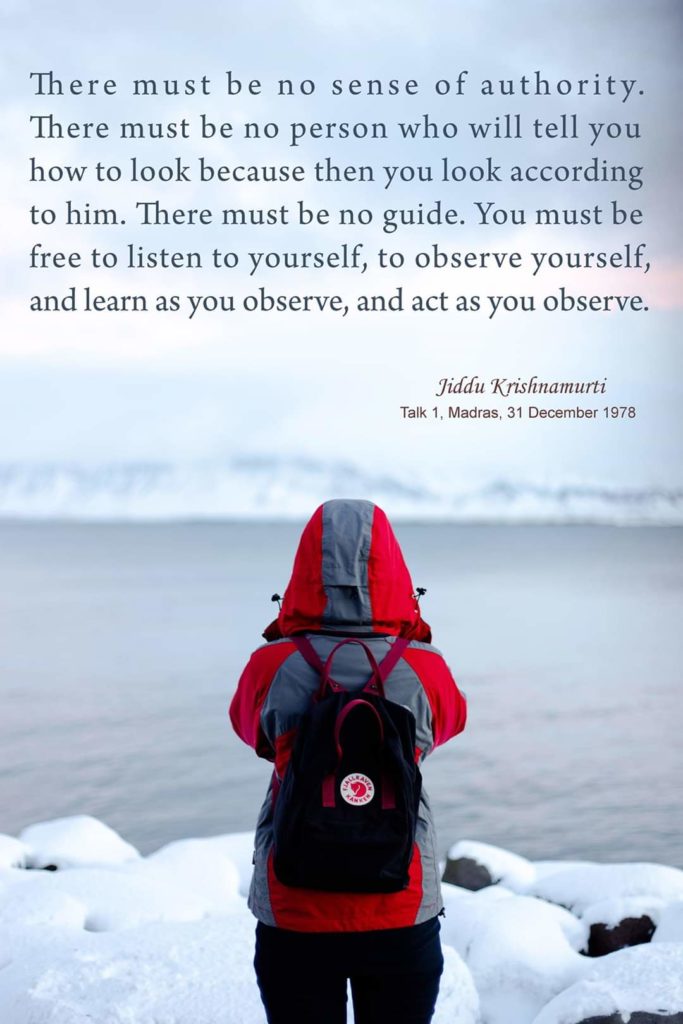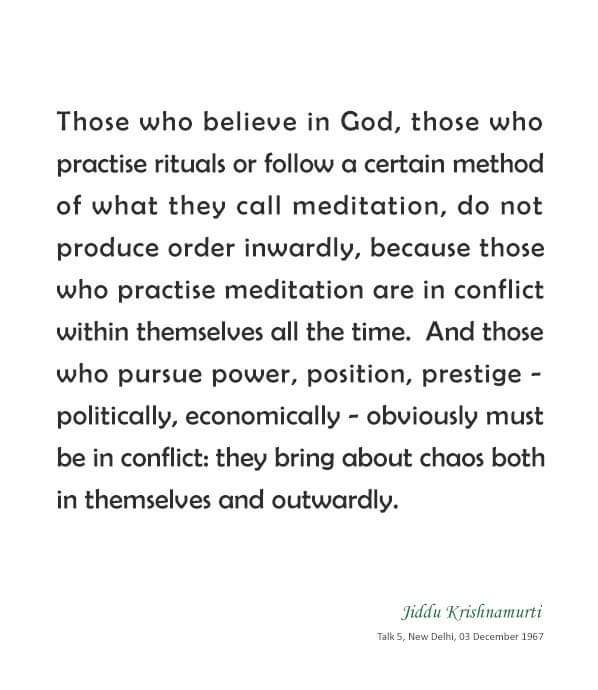What is this “me” that says, “I must be,” “I must meditate,” “I must find God,” “I must realize,” “I must be happy,” “I am lonely,” “I must be successful,” “I am frightened,” “I must be told”? Is it not the name, Mr. So-and-so, the form, the form being the body that you see in the mirror, and all the associated memories, all the concepts about yourself, the image about yourself, the image that says, “I am much better than you are”? Are they not all put together by thought? Thought itself is a fragment, and the activity of that fragment is not only the “me,” but the fragments it has created all round you—separate nations, separate classes, wars, the whole of that. And thought is a material process in time. Thought is the response of memory, experience, knowledge, stored up in the brain.
So the “me” to which we cling is fictitious. That may be the root cause of fear, clinging to something that is nonexistent. So, there is the fictitious, imagined me, a picture, a symbol, an idea, an image, put together by thought in time, which is a material process, measurement. And that “me,” being uncertain of its very existence, deeply, in the very depths of one’s being, may be the deep fundamental cause of fear. That doesn’t mean that if you have no “me” you cannot live in this world. On the contrary.
Total Freedom: The Essential Krishnamurti
Krishnamurti

